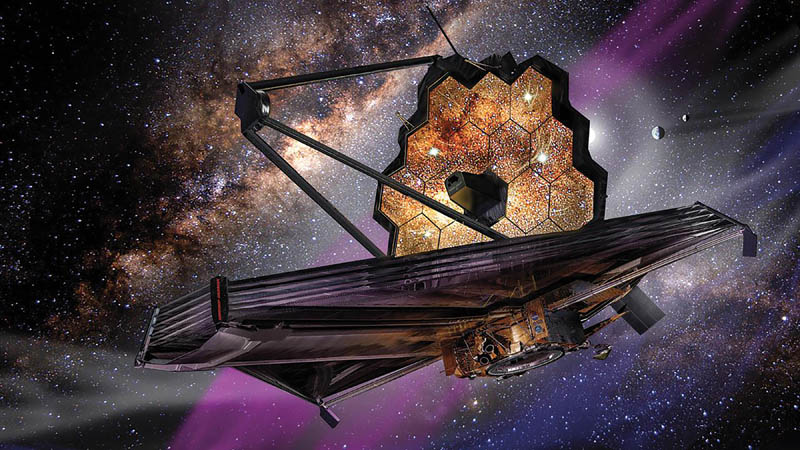Why I Work in Industry
Fall
2017
Pathways - Advice from Experienced Voices
Why I Work in Industry
Physics can be used everywhere!
By:Kyle W. Elliott, Software Engineer
Space Telescope Science Institute

Two years ago, as I was getting ready to graduate from the University of Maryland with bachelor's degrees in physics and astronomy, I knew I wanted to be a contributing member of the physics community. At first I thought that meant a PhD. After all, those with PhDs are the ones publishing new research, right?
But I realized that you don’t have to have a PhD to be a valued contributor to research. After all, what science can be done if the instrumentation is not sufficient?
I am currently working with the Operations Scripts Subsystem (Commanding) team of the James Webb Space Telescope (JWST) and making some intense, ground-breaking future science possible. I use the skills I learned as a physics and astronomy major, such as coordinate transformations and linear algebra, on a daily basis, and I must understand the reasoning behind certain scripts, such as those related to dithering, flats, and cosmic ray removal.
This is very satisfying work. While I was originally planning on attending graduate school for a PhD in astrophysics after my bachelors, after talking with various people—professors, mentors, supervisors, friends, and family—I came to the conclusion that industry makes the most sense for me at this point in time. I landed my first position after graduation in an internship with the US Naval Research Laboratory (NRL). This 10-month internship allowed me to greatly improve my software programming skills relative to science and engineering applications and made me a competitive candidate for the position I hold today.
My professional life has so far been filled with constant exposure to new research in physics and astronomy. To me that is just as nice as being a researcher—there is constant learning. Moreover, this is a good track to be on: I am still developing my skills, and the door is still open for me to apply to a PhD program later. I could also stay on this track and work my way up to, say, a principal software systems engineering position for a space telescope, which is a very prestigious and rewarding role.
Entering the workforce right after obtaining my bachelor’s degree and working full-time also made it easy for me to maintain financial security, manage my time, begin a tuition-reimbursed master’s education, and find a sense of balance with my hobbies and nonwork interests. I think a passion for physics and science in general can go hand-in-hand with sleep and a social life, and that it is by no means a betrayal of that passion to go into industry.
At this point in my career, I am happy with my choices. I am not a researcher (yet), and I do not think I will be doing traditional research anytime soon. But I realized that what I like most is using the skills and techniques associated with research to support teams. While going through graduate school may also have led me to this conclusion, I realized I do not need to be an academic or professional researcher to be a valued member of the scientific community and to have a wholly satisfying career.
